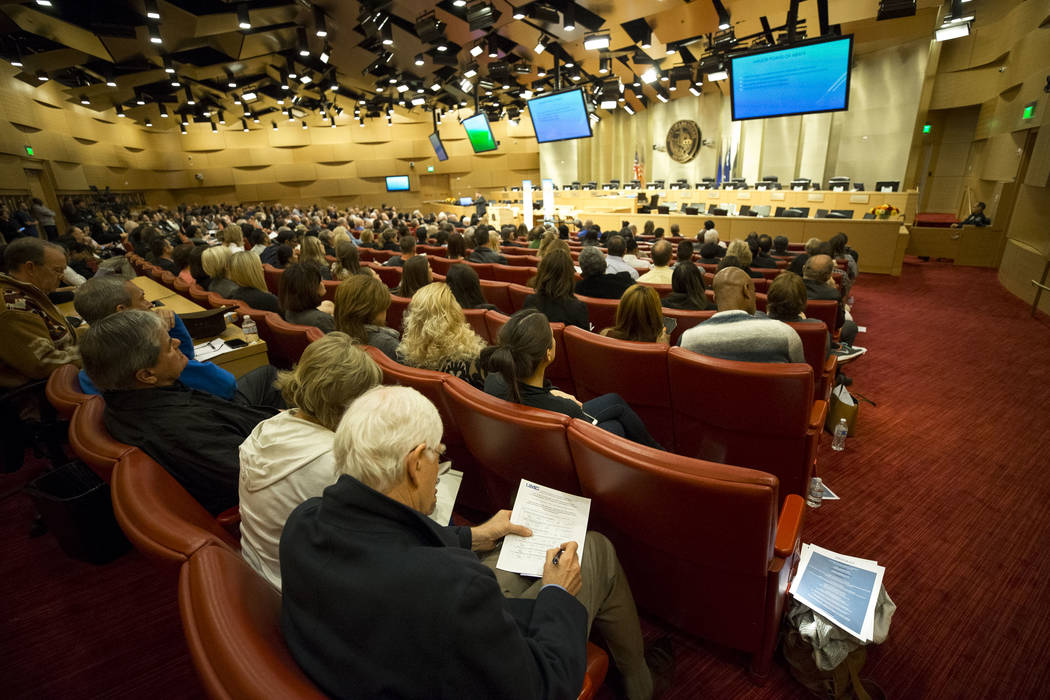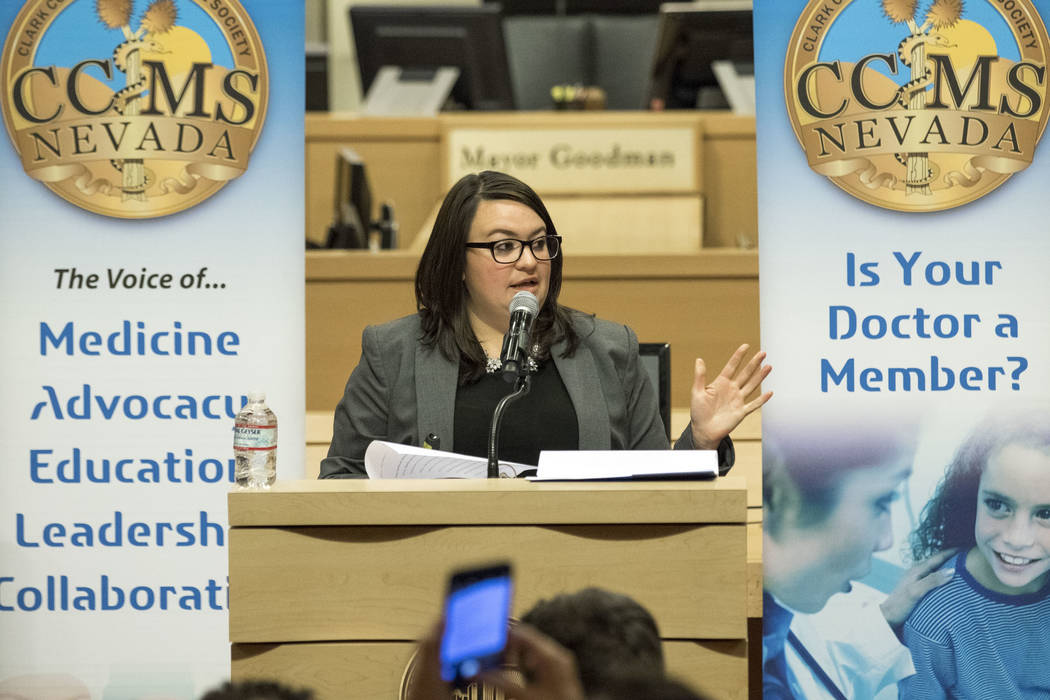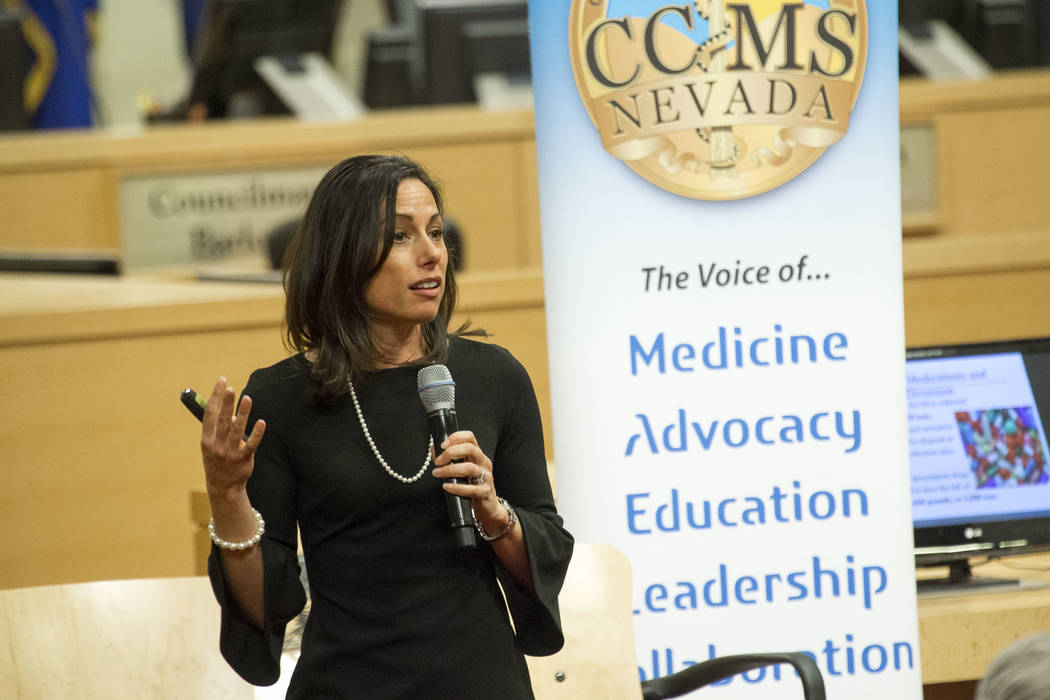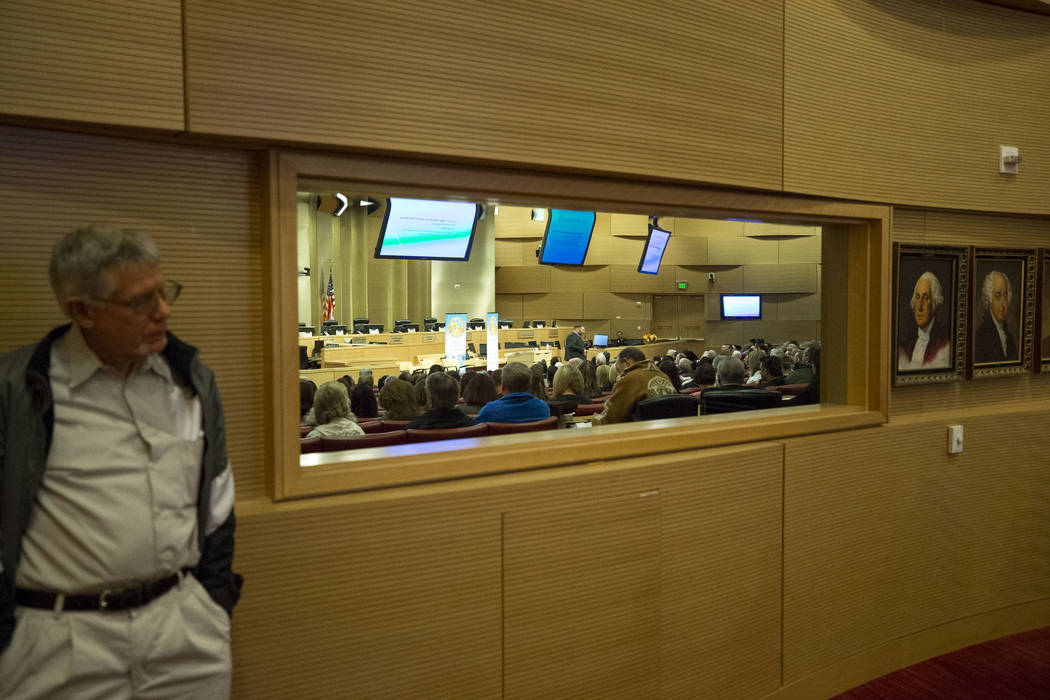Officials explain bill to curb opioid overprescription in Nevada
Nevada health officials on Tuesday said a bill aimed at curtailing opioid overprescription will keep decision-making in the hands of physicians, not lawmakers.
The provisions of Assembly Bill 474, which the Legislature passed into law this year and takes effect on New Year’s Day, were explained to about 200 physicians Tuesday evening at a forum at Las Vegas City Hall.
Daniel Burkhead, a physician at the Innovative Pain Care Center in Las Vegas, said the law asks doctors to exercise caution.
The law mandates that doctors conduct mental health evaluations before issuing first-time opioid prescriptions, which will be limited to 14 days. The law also mandates that doctors register with the state’s Prescription Drug Monitoring Program.
“(Lawmakers) did not want to take power out of the hands of physicians,” Burkhead said. “The law wants you to think, before writing that prescription, if this patient provides a high risk of that medication being diverted or abused or misused.”
Once a prescription exceeds a 30-day period, doctors will have to consider additional factors, including how many times a patient has asked for the drug or claimed to have lost it. Doctors who are determined to have prescribed painkillers inappropriately will face discipline.
The state’s prescription rate as of 2016 falls significantly above the nation’s — 87 per 100 people versus 66 per 100, respectively.
Nye and Mineral counties have the highest prescription rates based on population. Most overdoses occur in white residents ages 45 to 64, said Julia Peek, deputy administrator of community services for the state Department of Health and Human Services.
A question-and-answer session between presenters and audience members revealed confusion about the bill’s implementation.
One doctor said his patients’ insurers didn’t cover alternatives to opiates for pain management and asked how the law would address those patients. Elyse Monroy, health and human services policy analyst for the governor’s office, countered that in conversations with insurers, company representatives claimed they “cover everything.”
Monroy said, “I think what that means is there’s a disconnect somewhere.”
Her response elicited laughter from doctors in the crowd.
A couple of trauma physicians also asked how the prescriptions would work for in-patient opioid use in a hospital setting. Burkhead told doctors they could check for red flags in patient behavior more easily by providing them with a questionnaire, templates for which are online.
Several physicians wondered whether the law would funnel primary care patients to Nevada’s already inundated pain management workforce. Burkhead promised that wasn’t so.
“The new legislation does seem daunting. I will admit that,” he said. “But we’ve got to get going. We’ve got 25 days to do this.”
Contact Jessie Bekker at jbekker@reviewjournal.com or 702-380-4563. Follow @jessiebekks on Twitter.
Related
Clark County to sue pharmaceutical companies
Clark County may sue to recover opioid epidemic expenses


























